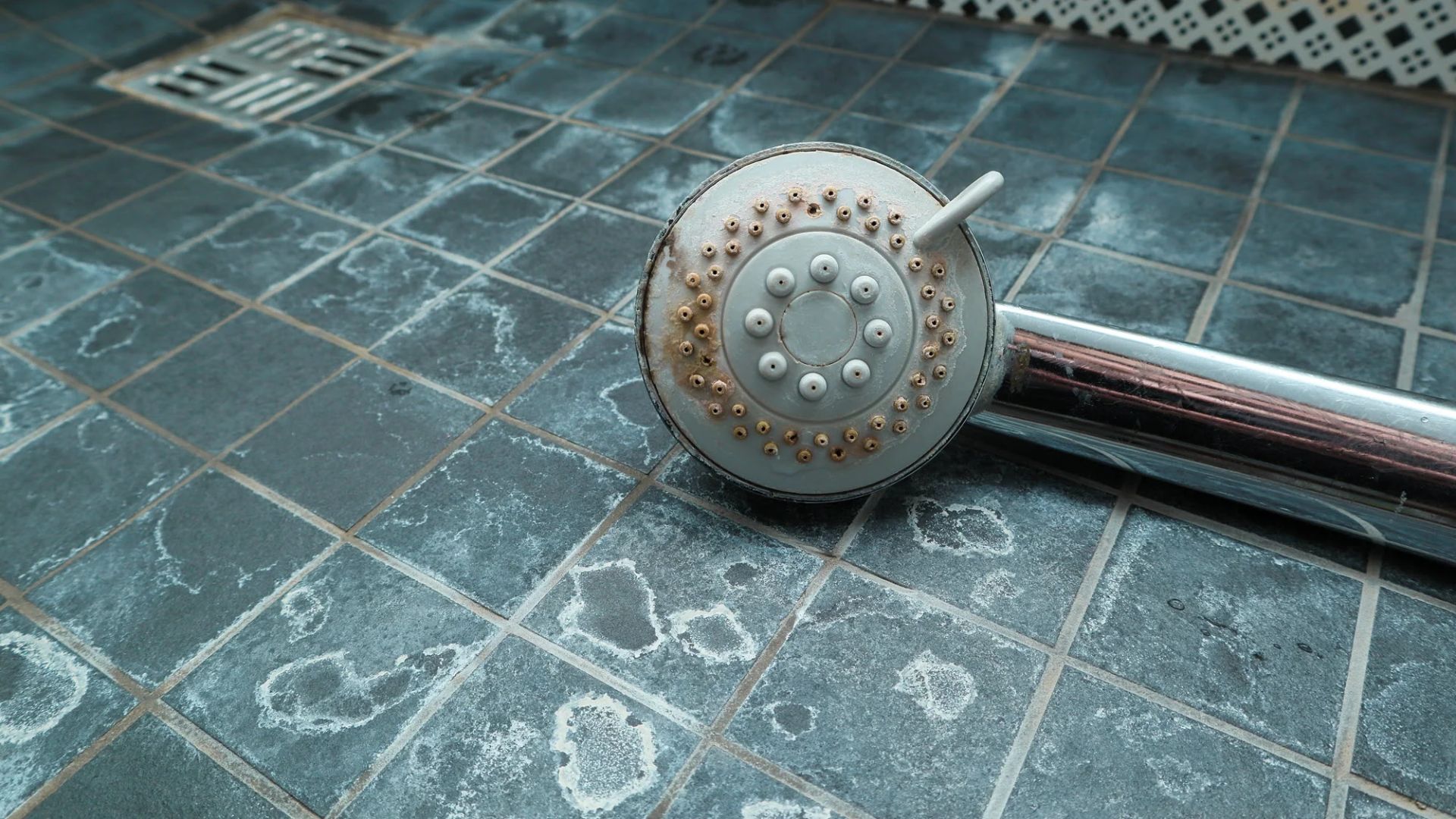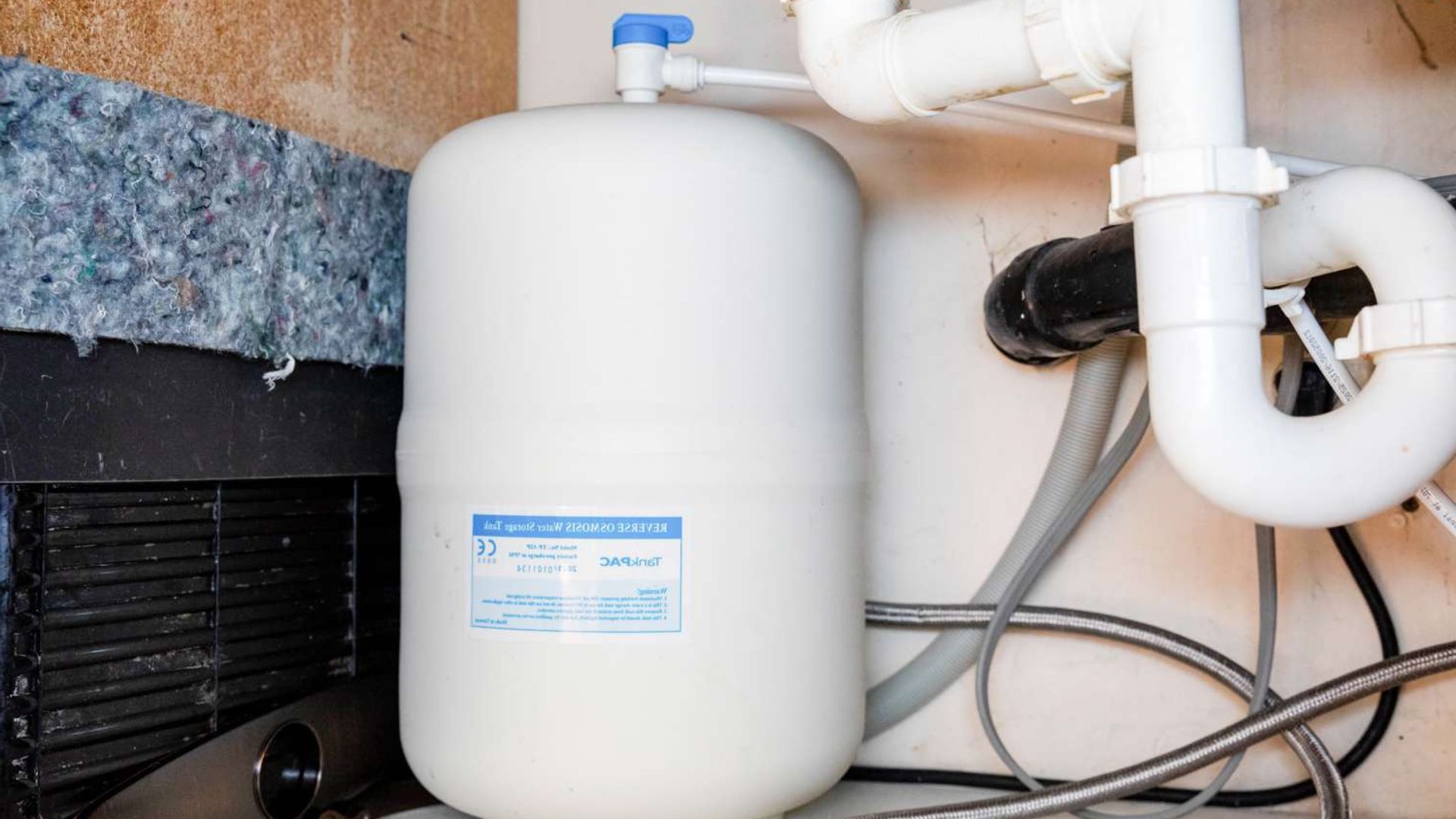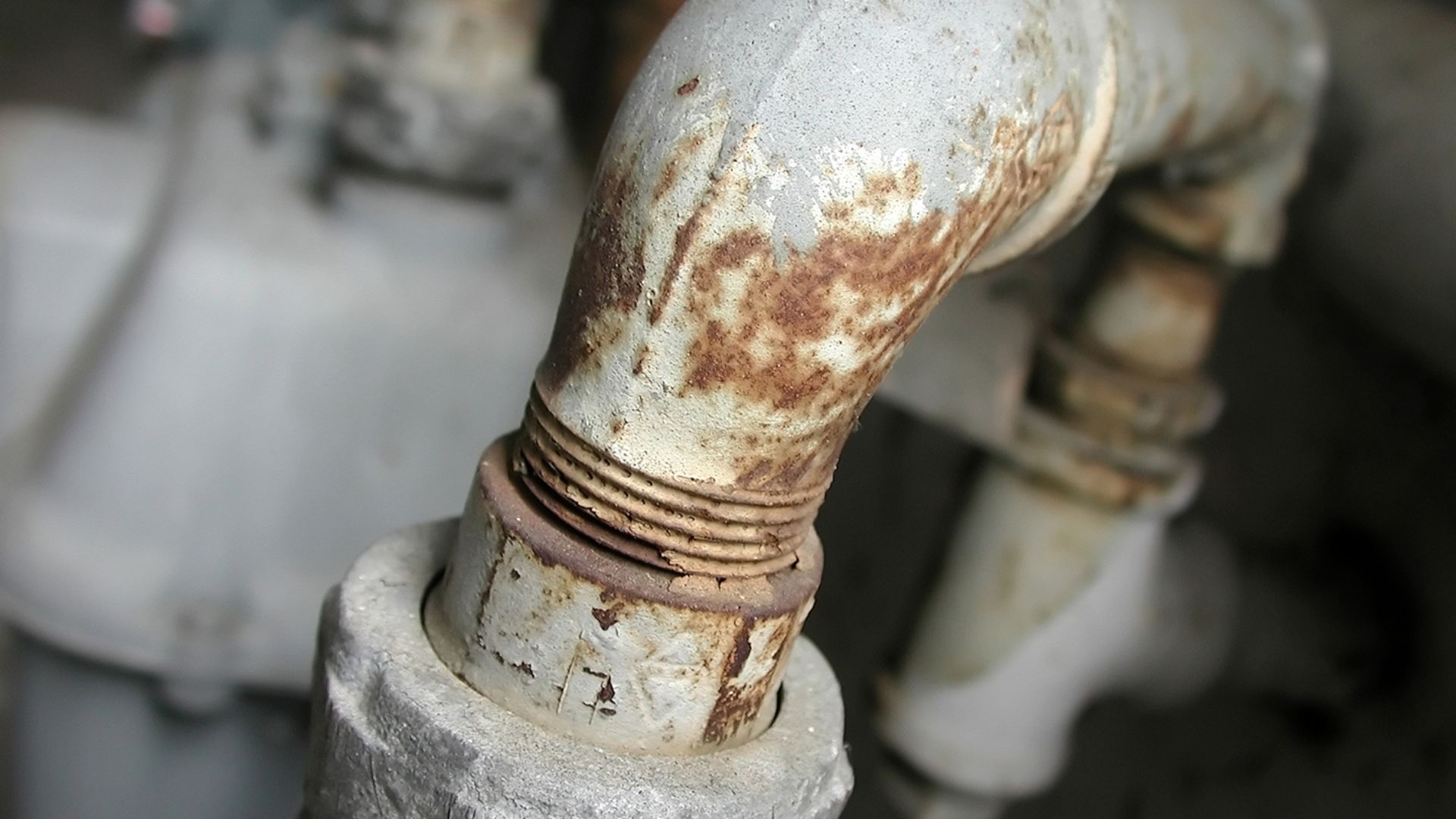7:00AM to 5:00PM
If you live in an area with hard water, you may have noticed rusty pipes, discoloured sinks and bathtubs, and scale build-up that clogs fixtures in your home. Hard water contains high levels of minerals like calcium and magnesium that, over time, leave mineral deposits inside your home’s plumbing. This scale build-up causes corrosion and rust within pipes, damaging your plumbing system.
Even small amounts of rust particles in the water can cause staining and give it an unpleasant metallic taste. The good news is that installing a water softener can help prevent these issues by removing the root cause—the hard minerals in your water supply.
In this article, we’ll explain how water-softening systems work to reduce calcium and magnesium through a process called ion exchange. Reducing these scale-causing minerals in your water prevents hard deposits from accumulating on pipe surfaces.
Water softeners help protect your plumbing from rust and corrosion by inhibiting scale build-up. We’ll discuss the benefits of preventing pipe rust to extend the life of your plumbing and avoid costly repairs. Investing in a water softener can improve your home’s water quality while saving you plumbing headaches in the long run.
Hard water contains high calcium and magnesium minerals dissolved in limestone, chalk, and other geological sources. As hard water travels through pipes, heaters, and appliances, these excess minerals come out of the solution and deposit on the interior surfaces.

Over time, mineral scale accumulates in layers coating pipes, fixtures, and other plumbing equipment. This hard mineral coating prevents proper water flow and heat transfer.
The scale deposits also begin corroding and eating away at the underlying pipe material, leading to pitting and rust formation. The corrosion caused by years of mineral build-up will eventually leak, clog, or rupture pipes and necessitate costly repairs. Investing in a water softening system is the solution to inhibit scale deposits and rust formation by removing the problematic hard water minerals.
Water softeners remove the calcium and magnesium minerals that lead to scale build-up and rust issues through ion exchange. Softening systems use resin beads charged with sodium ions.
As hard water passes through the softener, the resin beads attract and grab ahold of the calcium and magnesium ions while releasing their sodium ions in exchange. This process effectively replaces the hard water minerals with harmless sodium ions, softening the water.

Water softeners remove the minerals that form scale deposits, inhibiting the corrosion and rust caused by hard water. Without the build-up of mineral deposits, pipes stay smooth and clog-free.
Water flows freely without friction and heat transfer loss from scale accumulation. With softened water, plumbing systems and appliances last longer and operate more efficiently without rust degradation over time.
Preventing rust build-up through water softening provides numerous benefits for your home’s plumbing system. By inhibiting mineral scale on pipes, corrosion is significantly reduced, which extends the lifespan of plumbing.
Pipes will not degrade and leak over time without the damage caused by rust formation. Appliances and fixtures also last longer without scale deposits and erosion from rust particles in the water.

A water softener protects your investment in plumbing equipment and avoids expensive repairs or replacements from rust damage. Softened water flows better through smooth pipes without scale build-up causing clogs or flow restriction.
Faucets, showerheads, and appliances receive full water pressure and volume. Additionally, removing minerals results in cleaner, better-tasting water without metallic flavours from rust particles. Effective rust prevention through water softening saves you money and provides healthier water.
If your home has hard water, investing in a water-softening system is an intelligent decision to prevent destructive rust and extend the life of your plumbing. This protects your pipes, fixtures, appliances, and more from scale accumulation, leading to rust formation over time. Preventing corrosion and rust build-up avoids water flow problems, staining, foul tastes, and leaks down the road.
The upfront cost of purchasing and installing a water softener is heavily outweighed by the costly repairs it can help you avoid. You also gain the benefits of softened water for cleaning and washing. When you invest wisely in a water-softening system, your plumbing and water-using equipment will last longer while providing better-quality water for your home.
Hard water wreaks havoc on plumbing systems by causing scale build-up and rust corrosion over time. Investing in a water softener is the solution to inhibit mineral deposits and extend the life of your pipes and fixtures.
Water softening systems remove the problematic calcium and magnesium ions through ion exchange, preventing scale accumulation. With softened water flowing through your plumbing, you can avoid the frustrations of rusty fixtures, restricted water flow, staining, and metallic tastes.
For homes with hard water issues, installing a water softener is a smart preventative measure for protecting your plumbing and water quality. Gold Coast Plumbing Company professionals have extensive experience providing quality water-softening solutions.
Contact us today to learn more about the benefits of water softeners and how we can customise the ideal whole-house system for your needs. Invest in preventing destructive rust and scale build-up with water softening from the trusted experts at Gold Coast Plumbing Company.